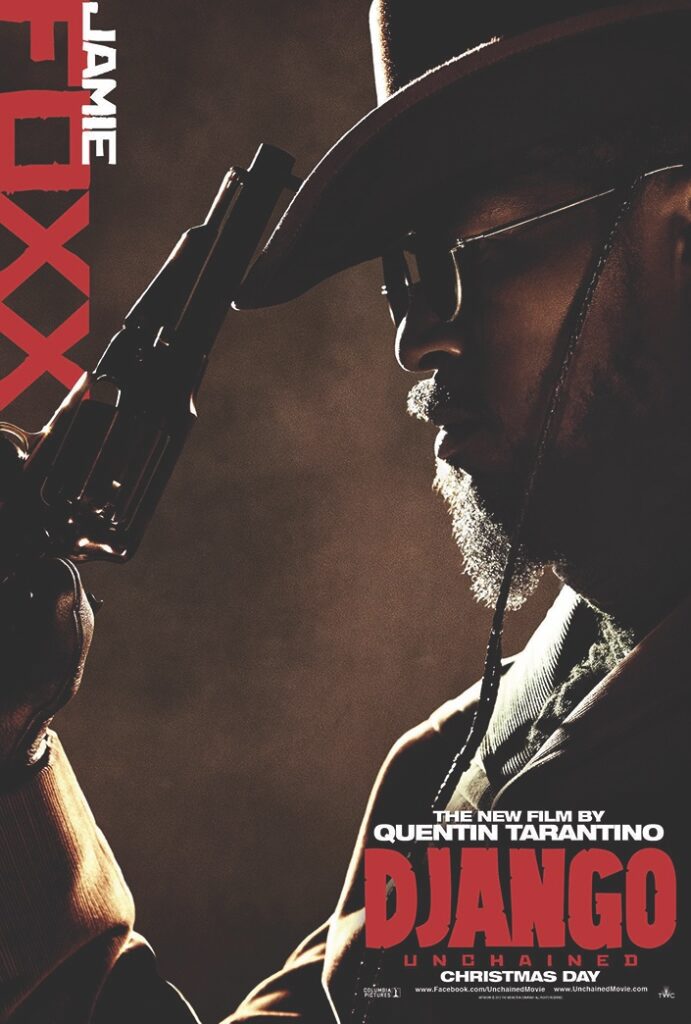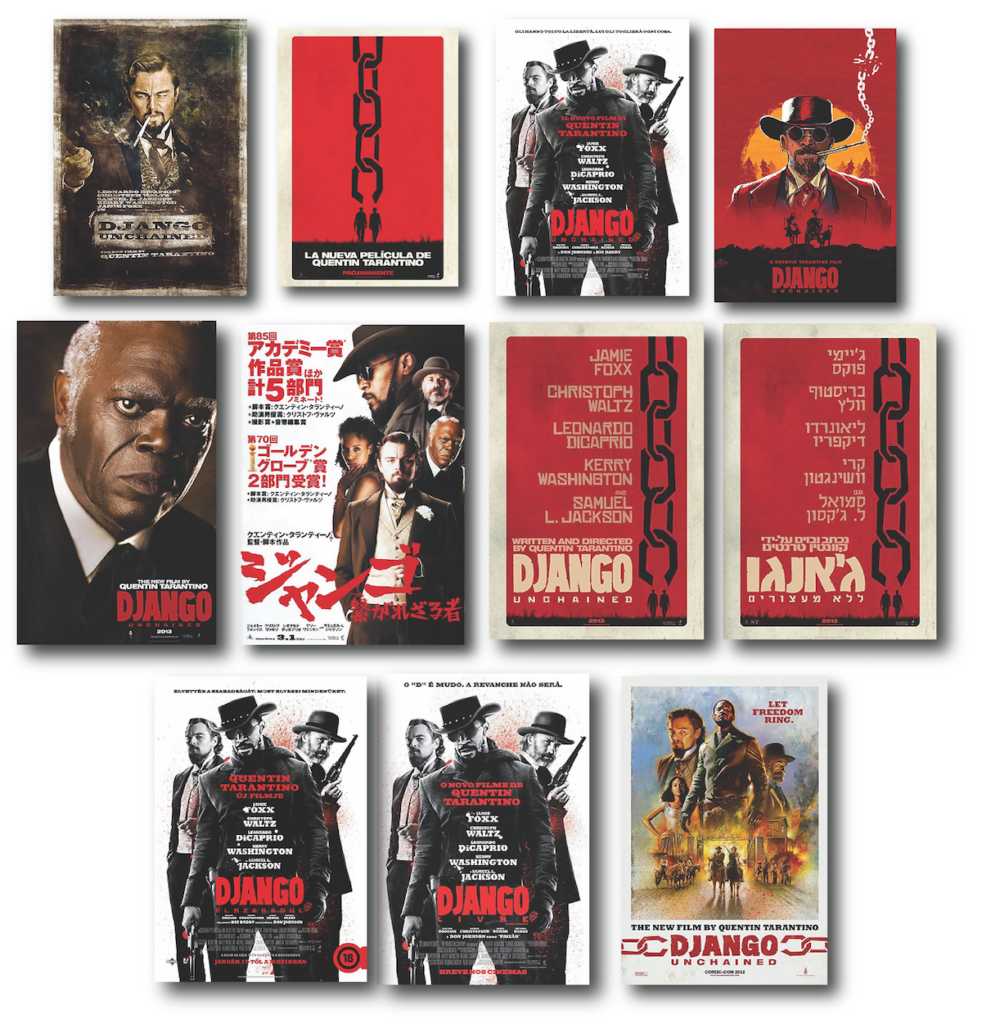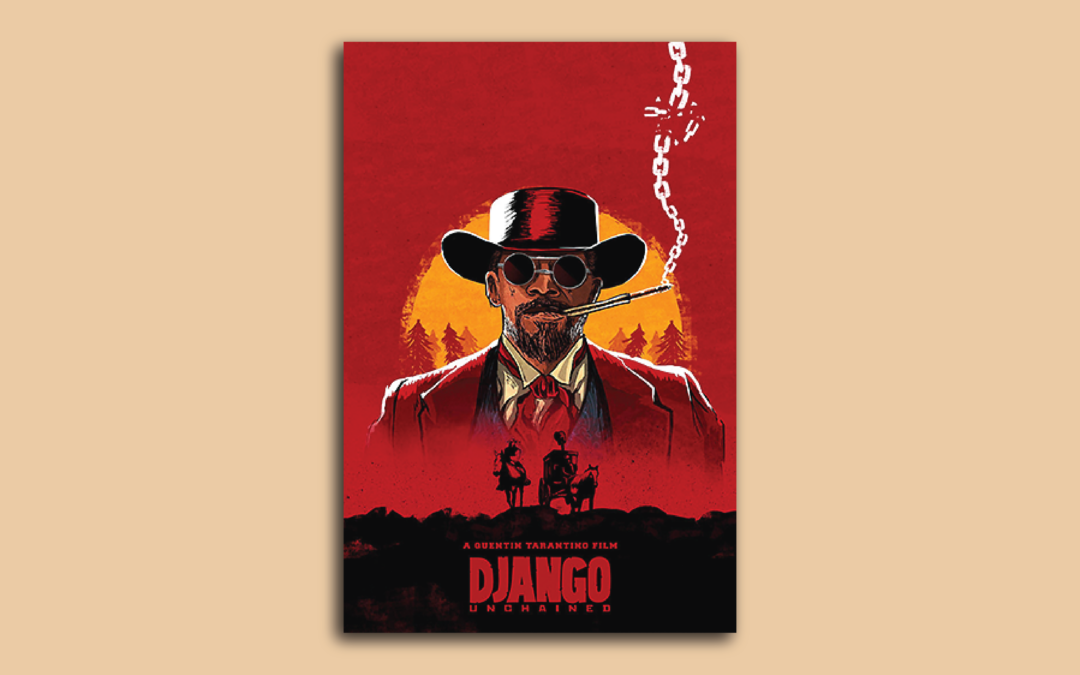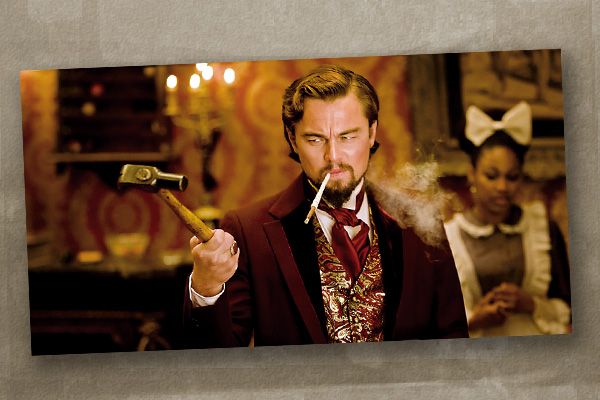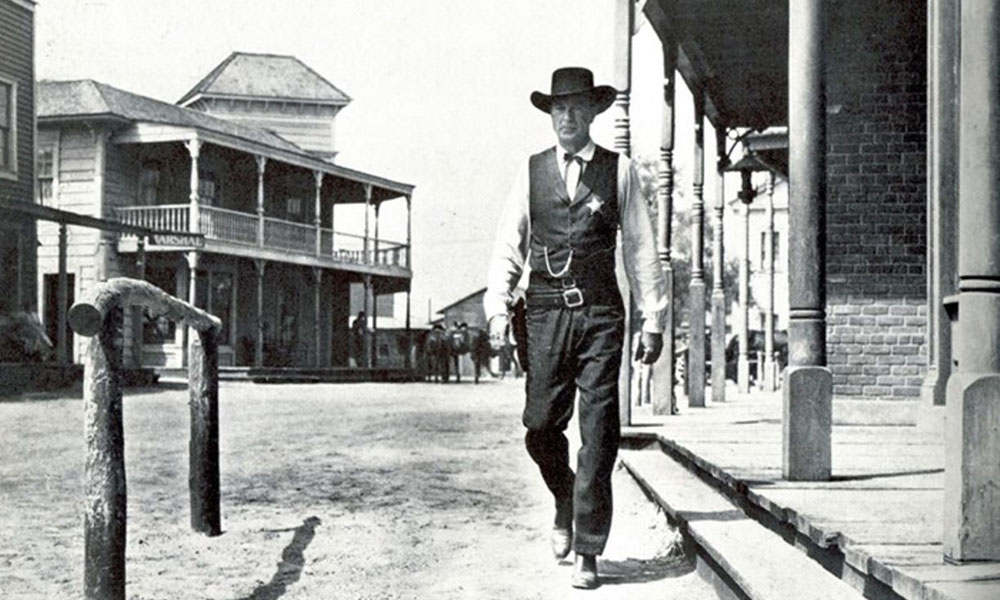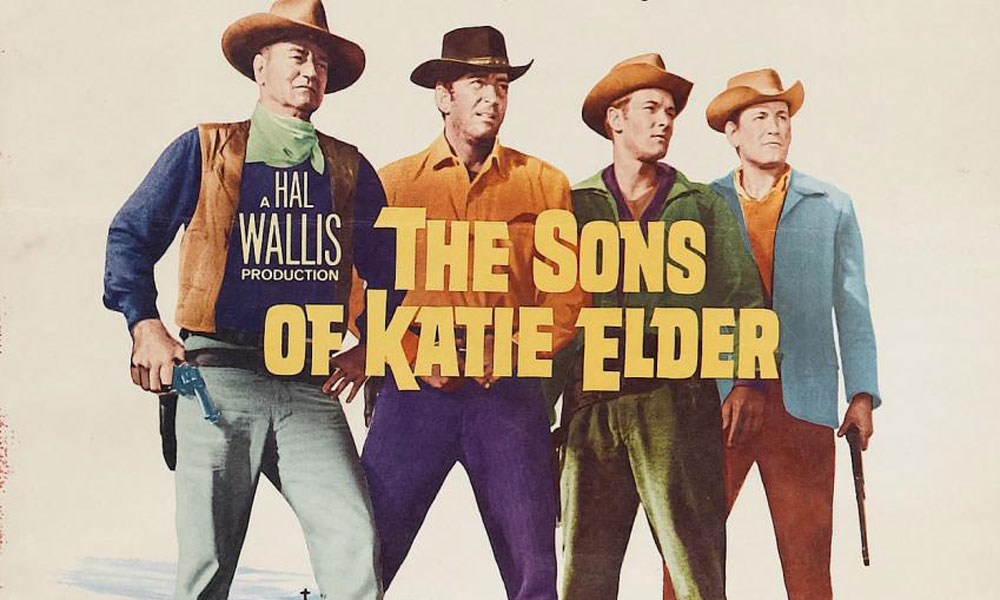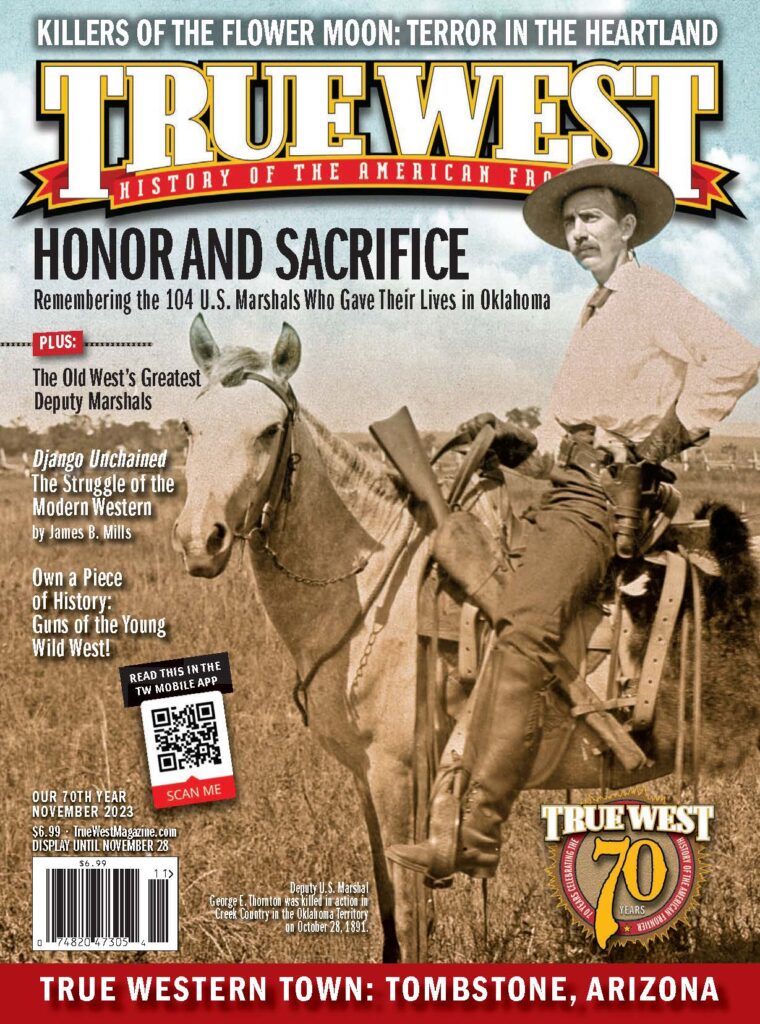A decade since the highest-grossing Western was released, the film remains controversial.
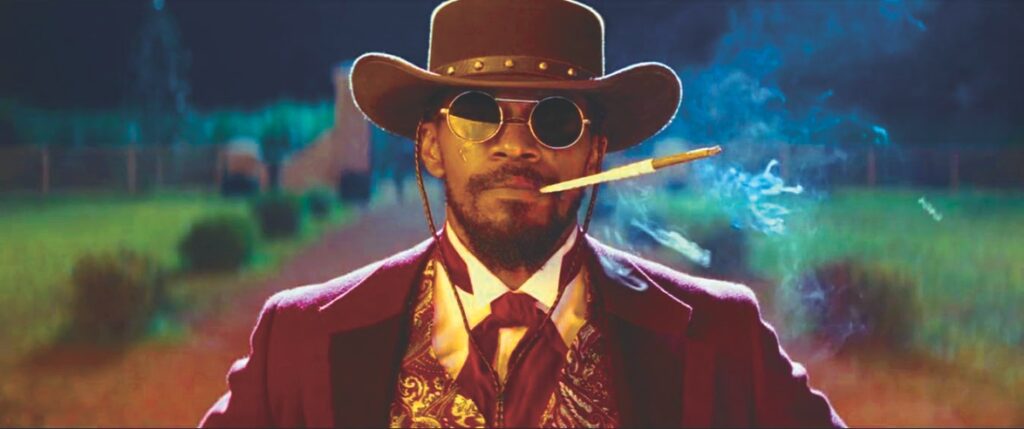
There are many disconcerting issues that a young historian of the American frontier must confront as the 10-year anniversary of the release of Django Unchained recently passed without acknowledgement from True West and those who stopped paying attention to pop-
culture when Reagan left office. The academic cliques presently holding positions of influence are seemingly obsessed with patting each other on the back for acting like Gandhi. The archivists still hoarding their sacred public domain photo collections pick like vultures at the warm, breathing carcass of every historian who comes their way in the hopes of foraging a dime. Then there’s the deeply liberal and conservative outrage expressed over the moral implications of supposedly glorifying frontier violence by not continuously raking every outlaw and lawman who shot somebody over the coals for their 19th-century actions. There’s creeping-up-the-spine concern over the apparent lack of interest in the American West among younger generations.
As if all that were not enough, the slow-burning decline of the Western film genre also continues to trouble those with an insatiable passion for frontier history. There is little comfort in knowing my own generation was not responsible for this. Anyone paying attention knows the popularity of the genre began declining in the 1970s. That might explain why so many boomers continue salivating over the same old classic Westerns and deceased actors whom most people under the age of 40 couldn’t care less about in the 2020s. It seems there is always time for Tombstone, as we saw for the 28th time in last month’s issue of True West, but considering their lack of coverage, one would almost think the successful miniseries The English featuring superstar Emily Blunt and The Last Manhunt starring Hollywood heavyweight Jason Mamoa did not hit our screens last year. I have no doubt that watching Alan Ladd in Shane for the umpteenth time will remain a higher priority for some fossils than celebrating the success of Killers of the Flower Moon starring Leonardo DiCaprio in the autumn of 2023. An appreciation for the classics is fine, but as the saying goes: If you don’t change with the times, then you get left behind.
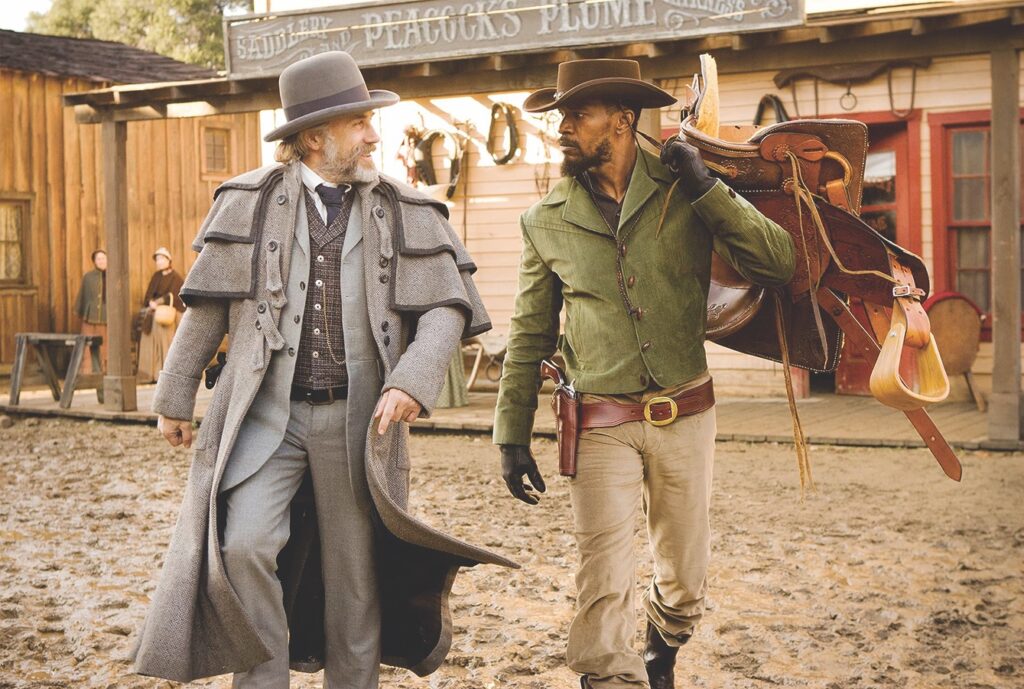
While nostalgia remains a powerful drug for those wishing to relive their own childhoods at the expense of the present, with the benefit of hindsight, the most grievous body blow the modern Western has suffered was the release of Unforgiven. Clint Eastwood’s final Western was rightly met with critical acclaim, taking home Oscars for Best Picture, Best Director and Best Film Editing at the 1992 Academy Awards. Gene Hackman was also highly deserving of his Best Sup-porting Actor triumph. Unforgiven remains a gritty and surreal portrayal of frontier life, but the film’s legacy has ultimately been a procession of modern Westerns in which hardened gunmen and soldiers spend half their time wallowing in teary-eyed repentance over the things they have done. This was demonstrated by Kurt Russell’s initially guilt-ridden Wyatt Earp in Tombstone, Kevin Costner’s cow-punching gunman in Open Range and Christian Bale’s reflective cavalry officer in Hostiles.
Recently, Hollywood even had Dane DeHaan’s Billy Bonney blubbering into a bottle of whiskey in The Kid. In portraying gunfights as deeply immoral, Unforgiven subsequently transformed the Western into a frontier version of The Breakfast Club. It is difficult to envision Wyatt Earp ever crying on somebody’s shoulder over the cowboys he shot down in his younger years. Geronimo went to his grave wishing he had killed more Mexicans, and the surviving participants of the Lincoln County War never sounded particularly rueful over their actions.
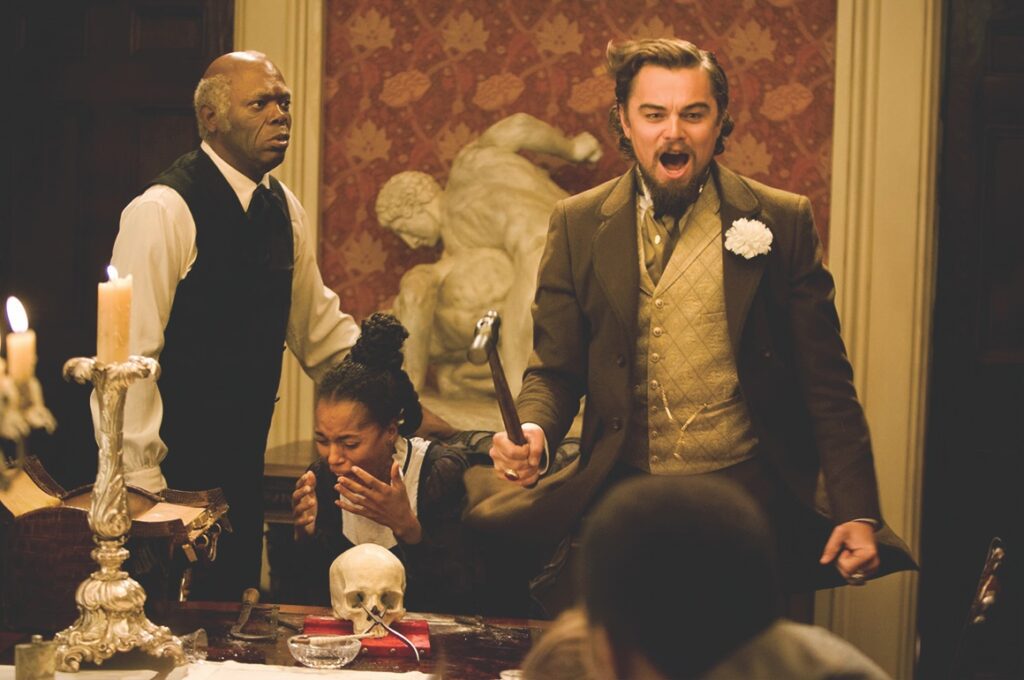
Although Jim Jarmusch’s Dead Man (1995) featuring megastar Johnny Depp and the Coen Brothers’ successful remake of True Grit (2010) provided some welcome relief from frontier sorrow, it was Quentin Tarantino who delivered the highest-grossing Western of all time in unremorseful fashion. Django Unchained began raiding movie theatres like a horde of pissed off Comanches and took no prisoners on December 25, 2012. The film made more money in one week than Tombstone made throughout its entire theatrical run and eventually grossed $449 million at the box office. The glittering performances of Jamie Foxx, Leonardo DiCaprio, Samuel L. Jackson and Kerry Washington were met with widespread acclaim. The film also snared Academy Awards for Quentin Tarantino (Best Original Screenplay) and Christoph Waltz (Best Supporting Actor). Astonishingly, real-life cowboy Jamie Foxx never appeared on a True West cover, despite having played the lead role in the most financially successful Western ever made.
Without spoiling the entire plot for any readers who may have missed the film, Django Unchained tells the story of a slave in the pre-Civil War South named Django (Jamie Foxx), who gains his freedom after encountering German dentist-turned-bounty hunter Dr. King Schultz (Christoph Waltz). “A fortuitous turn of events brought Django and myself together,” the amiable Schultz later explains. Django and Dr. Schultz soon develop an affinity and eventually partner up as bounty hunters, which proves a fruitful arrangement for both. “I kill people and sell their corpses for cash,” Schultz nonchalantly tells his new partner. Django’s self-assurance steadily grows as he displays an instinctive talent with a six-shooter and a rifle. “The kid’s a natural,” his suitably impressed German mentor remarks.
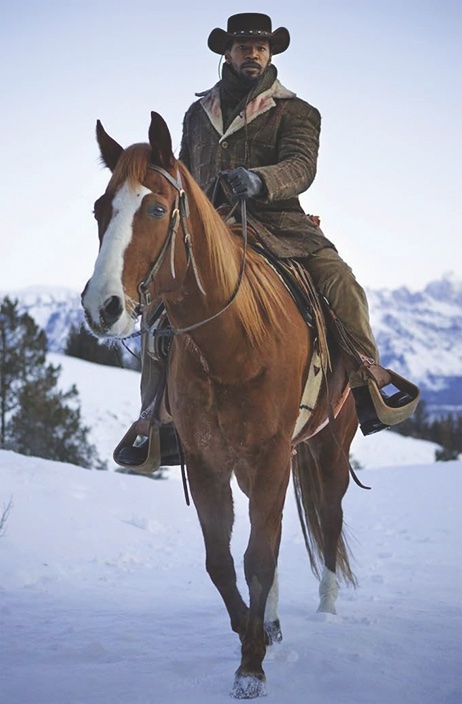
Throughout their travels, Dr. King Schultz learns that Django—the D is silent, hillbilly—is a married man. The former slave was cruelly separated from his wife Broomhilda von Shaft (Kerry Washington) when the two were sold at a slave auction following an unsuccessful escape attempt from a plantation. Dr. Schultz and Django, now the “fastest gun in the South,” set out on a quest to find the Black bounty hunter’s estranged spouse. Their search soon leads them into the orbit of the film’s primary antagonist, a suave but repulsive slaver named Calvin Candie (Leonardo DiCaprio), who runs an infamous plantation known as Candyland in Mississippi. “Ain’t no slave ain’t heard of Candyland,” Django tells his German companion. Quentin Tarantino has long been a master of creating an atmosphere of steadily increasing suspense. The director does not disappoint in the lead up to the film’s explosive culmination, which sees Django standing tall in some dapper burgundy threads, a cigarette holder resting between his lips, and his own brand of Southern justice dished out with an appropriate vengeance. Who says it can’t be fun when the rabbit has the gun?
The versatile Jamie Foxx was every bit the iron-nerved protagonist that Django Unchained needed in the leading role, with the delightful, talented Kerry Washington proving the perfect choice to play his resilient ladylove. Samuel L. Jackson shocked some of his longtime fans by playing Calvin Candie’s elderly head house slave, Stephen, the kind of character contemptuously referred to as an “Uncle Tom” in our present time. “I told Quentin when he called me and I read the script, so you want me to be the most hated Negro in cinematic history,” Jackson later recalled. His performance was a tour de force.
While the role of Dr. King Schultz appears to have fit Christoph Waltz like a custom-made suit, Leonardo DiCaprio initially struggled with his portrayal of the detestable Calvin Candie. “This was one of the most narcissistic, self-indulgent, racist, most despicable characters I’ve ever read in my entire life,” the actor later said. After Samuel L. Jackson put his arm around Leonardo and implored him to “get over it,” as it was “just another Tuesday for us,” DiCaprio ended up so deeply in character that
he carried on acting after accidently cutting his hand on some glass while filming a scene at a dinner table, earning himself a standing ovation from the cast and crew. The film was further complemented with strong performances from Walton Goggins, James Remar, Jonah Hill, Don Johnson, James Russo, Bruce Dern, M.C. Gainey and Ato Essandoh in various supporting roles scattered throughout the story. Franco Nero, star of the 1966 Italian film Django, also showed up in a welcome cameo role, although the less said about Quentin Tarantino’s atrocious attempt at an Australian accent in his own cameo appearance, the better.
Like many Tarantino films, Django Unchained walked hand in hand with controversy. The movie was roasted by some for its frequent use of racial slurs. It wasn’t stamped with wholesale approval from the Black community either, as demonstrated by Spike Lee’s criticism over the film’s portrayal of slavery. The film was also viewed with derision by a handful of twitchy, self-pitying White folks who consider themselves the oppressed victims of modern society. While some younger people are put off by the interviews in which John Wayne sounded like a card-carrying member of the Ku Klux Klan, the complaints over the racism portrayed in Django Unchained—the story of a freed slave set primarily on plantations in the 1850s Deep South—were like complaining about there being too much anti-Semitism in a Holocaust film. History is not always considerate of our modern-day sensitivities.
The grievances expressed over the grossly exuberant reward sums offered for the outlaws whom Django and Dr. King Schultz pursue in the film were admittedly valid, and there is no hard evidence that “Mandingo fighting” occurred in the Antebellum South. Django Unchained also perpetuates the myth of the lone bounty hunter in frontier times. “There was no Dog the Bounty Hunter in the Wild West,” historian Art T. Burton recently said. The indignant response to the occasional use of rap music was to be expected in some circles, although many a child of the ’80s and ’90s was probably exhilarated by the pulsating sound of the late Tupac Shakur (the Elvis of hip-hop for any unfamiliar old-timers) spitting some lyrics while Django’s revolvers are spitting bullets in Candyland.
There were also criticisms of the violence depicted in Django Unchained, which was reminiscent of the spaghetti Westerns to which the film pays considerable homage. It should be noted that The Good actually kills more men than The Bad and The Ugly combined in Sergio Leone’s 1966 Western classic. Like the Man with No Name, both Dr. King Schultz and Django are unapologetic for their violent actions on the harsh frontier. They shed no tears for the many men their rifles and revolvers send tumbling into an early grave, and the film steadily pushes toward its climax in an unrepentant blitz of blood-splattering gunfire—or Hell if it were run by Charlton Heston.
Wherever the modern Western is heading—Benicio Del Toro needs to saddle up and play the badass vaquero
role for which he is clearly suited—Django Unchained proved we can still make time for the blockbuster Western, despite the anxious wait for that highly anticipated text message. That insatiable need to be swallowed up and bathe in the warm drool of the latest deeply satisfying social media comments. The swelling generations are busy downloading apps while the wings of knowledge are sharply plucked by the overripe hand of their own personal reality show. Yes, those young people staring at their iPhones can also enjoy a Western. They just prefer to watch celebrated actors from their own time rather than Gary Cooper and Fess Parker.
Django Unchained showed us there was still hope for the Western genre in all its uncompromising glory following its release in 2012. No other Western has come close to replicating the film’s immense popularity and cultural impact in the decade since. Even if the hugely successful tale of a freed-slave-turned-gunman proves to be the death rattle of the Western box-office hit, I like the way you die, boy.
